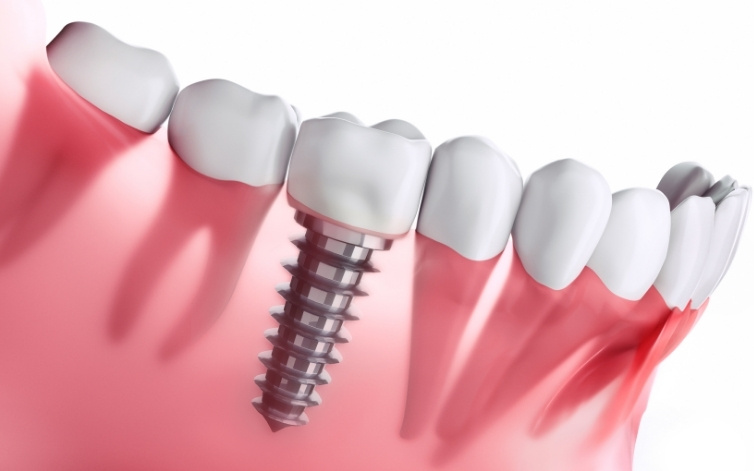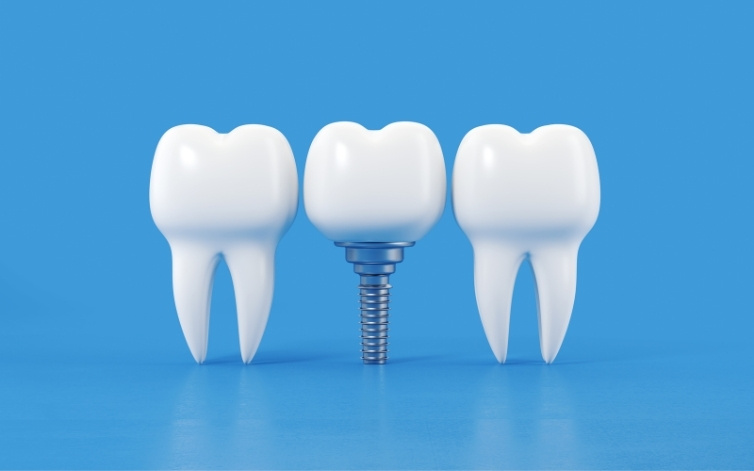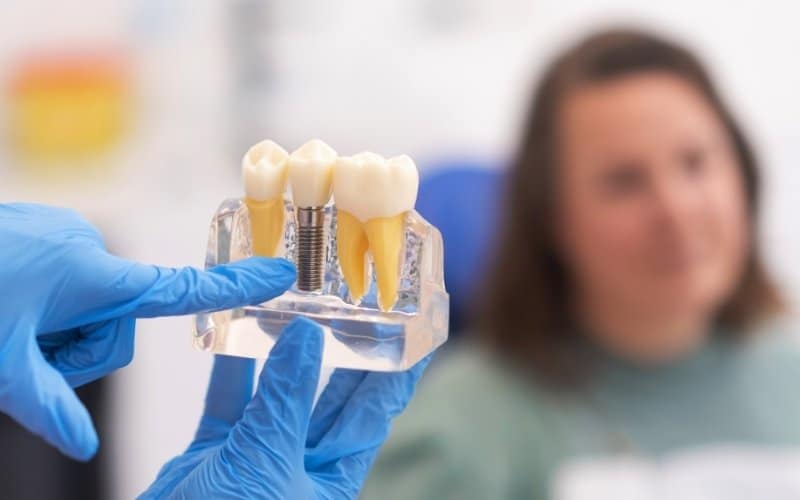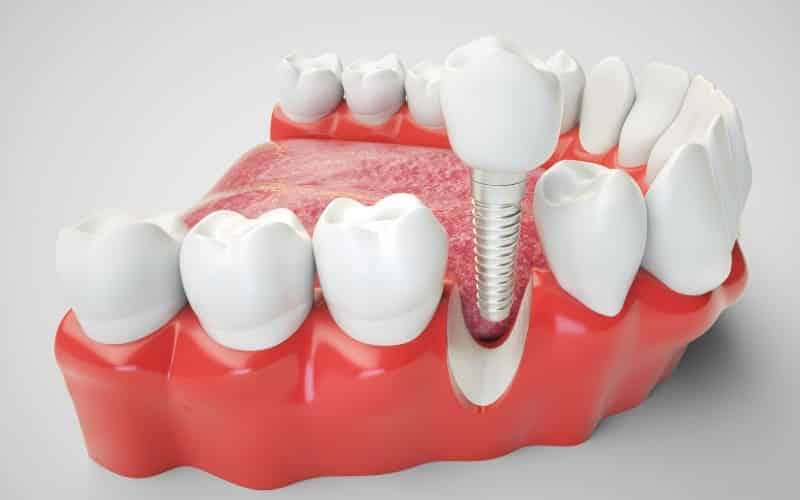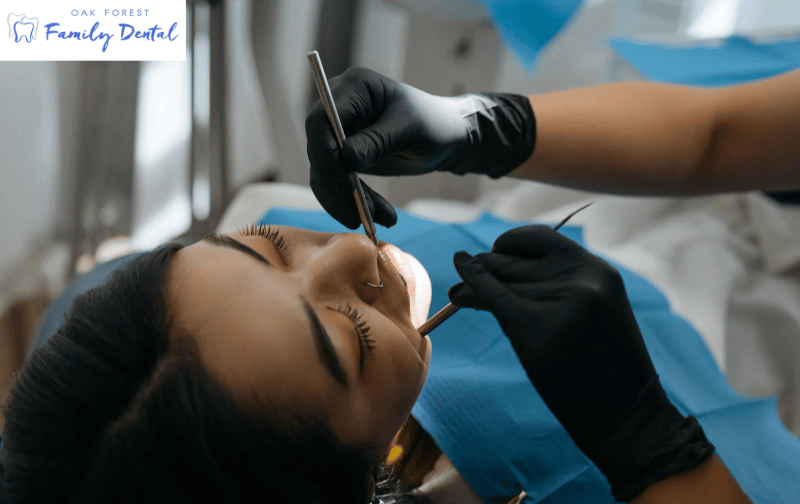Dental implants are a common and successful method of tooth replacement. However, the optimal age for dental dentures can vary depending on individual factors. This article aims to provide valuable insights into the considerations for different age groups regarding dental denture procedures. Whether you’re a young adult, middle-aged adult, or older adult, understanding these age-specific factors will help you make informed decisions about the timing and suitability of dental dentures. By seeking professional consultation, you can determine the best age for dentures based on your circumstances.
Dental Implants In Young Adults:
Advantages At A Younger Age:
1. Improved confidence and aesthetics: Young adults often place great importance on their appearance, and dental dentures can provide a natural-looking and confident smile.
2. Prevention of bone loss: When a tooth is lost, the jawbone can deteriorate over time. Dental dentures stimulate the bone, preventing further bone loss.
3. Long-term durability: Dental dentures are designed to be a permanent solution, offering long-lasting results compared to other tooth replacement options.
Factors To Consider For Young Adults:
1. Jawbone development: The jawbone matures throughout adolescence and early adulthood. It is important to ensure that the jawbone has fully developed before undergoing dental denture surgery.
2. Overall oral health: Young adults should have good oral hygiene habits to support the success of dental implants.
3. Ongoing maintenance: Dental dentures require proper care and regular dental check-ups to maintain longevity.
Consultation With A Dental Professional:
It is crucial for young adults considering dental dentures to seek advice from a dental professional. They will assess the individual’s situation, including jawbone development and oral health, and provide personalized recommendations and treatment plans.
By understanding the advantages of getting this process at a younger age and considering the relevant factors, young adults can make informed decisions about whether dental implants are the right choice for them. Consulting with a dental professional ensures that the timing and suitability of dental dentures align with their unique needs and circumstances.
Dental Implants In Middle-Aged Adults:
Benefits And Challenges In Middle-Aged Adults:
1. Restoring oral function: It can effectively restore bite functionality, allowing middle-aged adults to eat, speak, and chew comfortably.
2. Improved aesthetics and confidence: Tooth loss can impact self-esteem. This process provides a natural-looking, permanent solution that enhances appearance and boosts confidence.
3. Challenges due to decreased bone density: Middle-aged adults may experience reduced bone density, which can affect the success of implant procedures. This requires careful assessment and potential treatments such as bone grafting.
Common Dental Issues Faced By This Age Group:
1. Tooth decay: Middle-aged adults are susceptible to tooth decay due to factors like diet, lifestyle habits, and hormonal changes.
2. Gum disease: Gum disease becomes more prevalent with age, potentially compromising the success of this dental process. Proper oral hygiene and regular dental check-ups are essential for managing gum disease.
Regular Dental Check-Ups And Oral Hygiene Maintenance:
In middle-aged adults, regular dental check-ups are crucial for monitoring oral health, addressing any dental issues, and ensuring the longevity of this process. Maintaining good oral hygiene practices, including brushing, flossing, and mouthwash, is essential for optimal oral health.
By understanding the benefits and challenges of dental dentures in middle-aged adults and being aware of common dental issues faced by this age group, individuals can make informed decisions about the procedures. Regular dental check-ups and proper oral hygiene practices play a vital role in achieving successful outcomes for dental implants in middle-aged adults.
Dental Implants In Older Adults:
Unique Considerations For Older Adults:
1. Bone health: Older adults may have decreased bone density, so assessing the jawbone’s ability to support dental dentures is essential.
2. Medical conditions and medications: Existing medical conditions and medications can impact the success of the procedures. Close coordination with healthcare providers is necessary to ensure compatibility.
3. Overall health assessment: A comprehensive evaluation of an older adult’s overall health, including their ability to heal and tolerate surgery, is essential before proceeding with dental dentures.
Potential Risks And Benefits Associated With Dental Implant Procedures In This Age Group:
1. Risks: Older adults may have compromised healing or a higher risk of complications due to age-related factors. It is crucial to discuss potential risks with a dental professional.
2. Benefits: This process can significantly improve oral function, speech, and confidence in older adults, enhancing their overall quality of life.
Importance Of Individualized Treatment Plans:
Each older adult’s situation is unique, necessitating a personalized treatment plan. This may involve additional procedures, such as bone grafting or Periodontal disease, to ensure the successful placement and integration of dental implants.
Considering unique considerations for older adults and the potential risks and benefits associated with the procedures, older adults must seek consultation with a dental professional. A comprehensive evaluation of their overall health and personalized treatment plans will aid in determining the suitability and success of dental dentures for older adults.
Factors To Consider For All Age Groups:
Regardless of age, several important factors should be considered before dental implant procedures.
1. Firstly, overall oral health and hygiene play a crucial role in the success of dental dentures. Maintaining good oral hygiene practices, such as regular brushing, flossing, and dental check-ups, is essential for optimal oral health.
2. bone density and jawbone health are significant factors to consider. Sufficient bone density is necessary to support this dental surgical process, and in cases of bone loss, bone grafting may be required.
3. Additionally, pre-existing medical conditions and medications must be evaluated to ensure they do not pose any risks or complications during the procedure. It is vital to consult with a dental professional who can assess these factors individually and provide personalized advice and treatment plans tailored to each person’s unique circumstances.
Choosing the best age for dental implants is influenced by various factors specific to each age group. Young adults, middle-aged adults, and older adults all have unique considerations that can impact the success of the procedures.
Understanding this process’s advantages, challenges, and potential risks at different ages is essential for making informed decisions. Consultation with a dental professional is crucial, as they can assess individual factors such as bone health, overall oral hygiene, and pre-existing medical conditions to provide personalized advice and treatment plans.
By considering these factors and seeking professional guidance, individuals can determine the optimal age for dental implants and enjoy the benefits of a restored smile and improved oral function.
You can also read our other article on Dental Implants: Why Are Dental Implants So Popular? – 5 Reasons

